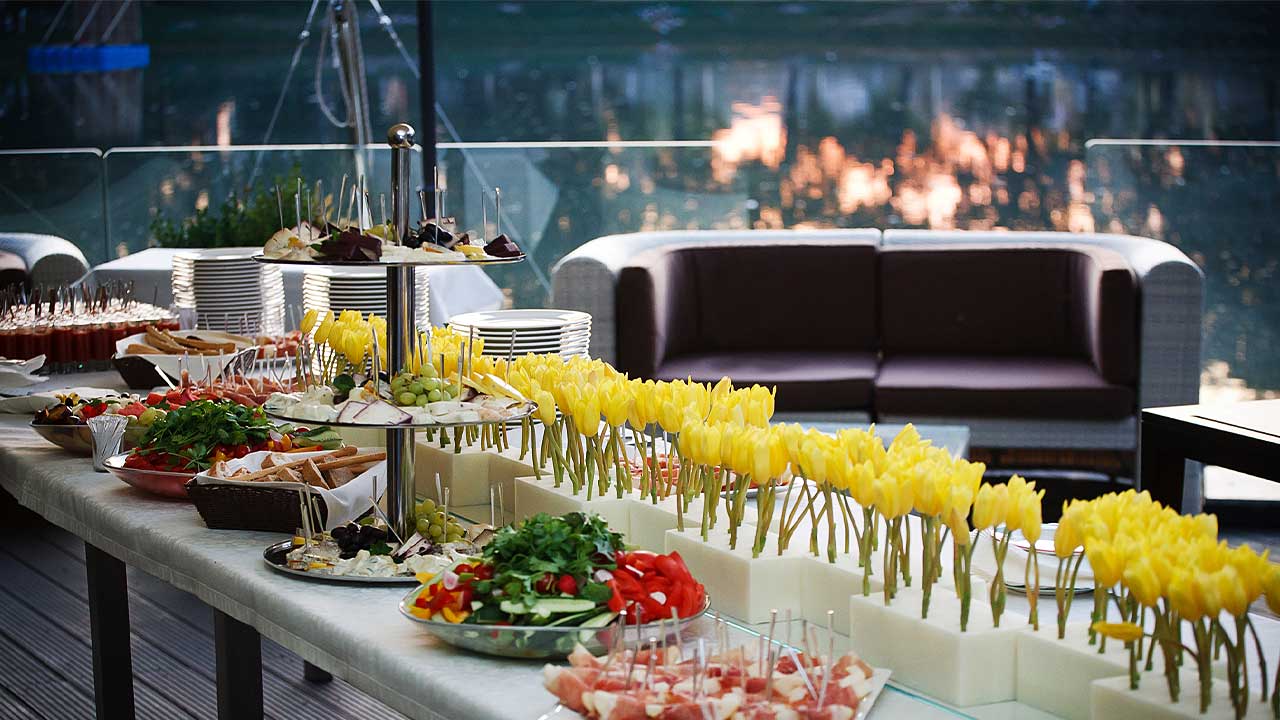Hotel Concept Development – Creating A Cohesive Concept For Hospitality Branding
The hospitality industry faces challenges from technology, changing consumer behaviors, and deregulation. The Covid-19 crisis has sped up these trends, pushing hoteliers to rethink their value proposition beyond the traditional concept of a hotel. The physical asset of a hotel is no longer the sole basis for its value. Storytelling, content creation, and community have become as important as location and design. To drive growth, hotels worldwide are transforming into unconventional concepts that combine media, retail, and hospitality. Examples include a Japanese hotel doubling as a fashion label and a Parisian B&B producing its own music.
Why create a hotel concept?
Whether you operate a small-scale family-owned property or oversee a collection of hotels, incorporating a hotel concept can bring numerous advantages. A skillfully implemented hotel concept provides various benefits throughout the development and operational stages. Here are several key advantages:
- Ensuring consensus among stakeholders by establishing a unified vision
- Creating a cohesive and captivating guest experience
- Lowering public relations and marketing expenses, as concept-driven hotels are inherently easier to promote
- Providing a marketable platform for investors and partners when presenting the project
You might be wondering, what exactly is a hotel concept? And most importantly, how do you implement a hotel concept successfully? Rest assured, our team of experts at Ziva is here to accompany you on this journey and address all these questions.
What exactly is a hotel concept?
Contrary to popular belief, interior designers aren’t solely responsible for hotel concepts. A successful hotel concept extends beyond space planning to include service design, storytelling, and communication strategy. A beautifully designed hotel alone isn’t enough; it requires a strong service concept and an engaging narrative. We believe a winning hotel concept integrates both ideas and physical elements. Our key factors for a cohesive hospitality branding are: story, space, people, services, content, channels, and identity. So, a hotel concept is the culmination of all these elements, where each component needs to be interconnected to ensure brand coherence.
The 7 elements
of a hotel concept
01
Story
In the realm of hospitality branding, a compelling story plays a crucial role in defining a hotel’s purpose and aspirations. Essentially, your story goes beyond the basic offering of a room and breakfast, providing guests with compelling reasons to choose your property.
Here are some key points to consider:
- A well-crafted story has a lasting impact, resonating with guests on an emotional level and reducing their sensitivity to price.
- Stories are difficult to imitate, making them a valuable asset that attracts journalists and keeps them engaged with your brand over the long term.
- Developing a captivating story is a cost-effective endeavor, especially when compared to the overall expenses involved in building or renovating a hotel.
02
People
In the realm of hotel concept development in hospitality branding, people play a vital role in bringing the vision to life. This includes your employees, guests, partners, and to some extent, your investors. Together, they form the foundation of your concept. People are at the heart of interactions within most hotel concepts. It is essential that the individuals you hire and collaborate with feel a strong connection to your story.
For instance, a hotel with a concept centered around “connecting people and ideas” may actively involve local entrepreneurs, academics, and venture capitalists. On the other hand, a hotel aiming to “promote better health” could establish partnerships with medical professionals, yoga studios, or fitness coaches.
03
Space
In our expertise, the Space element in hotel design plays a crucial role. It encompasses various aspects, such as zoning, customer flow, and interior design, all of which contribute to the overall physical appearance of the hotel. When creating a hotel space, it’s essential to ensure alignment with the core story or concept. For instance, a “rebel story hotel” would require a distinct design approach compared to a “conservative elite hotel”.
Zoning serves as the initial and most vital step in planning the hotel space, as it has a significant impact on the guest experience. Different spaces within the hotel serve different purposes and must be sensibly placed. For example, it wouldn’t be ideal to have a quiet library space located adjacent to a bustling restaurant or hotel bar.
Refining the customer flow is crucial as it allows guests to navigate seamlessly between different zones. This not only reduces stress but also presents opportunities for generating additional revenue. Lastly, interior design should be considered towards the end of the space design process, ensuring it harmoniously complements the overall concept and enhances the guest experience.
04
Channel
In hospitality branding, the Channel component encompasses both digital platforms and real-world initiatives that bring a hotel’s story to life. From online booking pages to themed parties, these channels serve as vital marketing touchpoints between you and your guests. While digital channels, including booking platforms and social media accounts, are crucial for hotel management, relying solely on them to forge an emotional connection with guests can be challenging due to the overwhelming amount of information available online. Face-to-face interactions remain unbeatable in terms of engaging people. Combining these elements breathes life into your story. Depending on your unique narrative and concept, potential activities may include flea markets, movie nights, modern art exhibitions, or outdoor pilates classes. Channels can also take the form of collaborations that drive direct bookings to your hotels. For instance, if you operate a wellness resort, you could establish partnerships with yoga studios in your target markets, offering them a commission for referring customers to your establishment.
05
Identity
As a hospitality branding expert, Ziva understands that the Identity element encompasses various components, such as graphic design, verbal communication, and sensory experiences, within a hotel concept. From corridor signage to website layout and even the choice of hold music, every detail presents an opportunity for a hotel to establish its unique identity. Since guests encounter these elements before, during, and after their stay, it is crucial for the hotel’s identity to align seamlessly with its overarching story.
Visual identity, in particular, plays a vital role in shaping the hotel’s identity and influencing its perceived value. A well-designed website, for instance, serves as effective advertising in its own right. Moreover, the visual identity you develop should extend to the content you create, such as Instagram posts, trade show banners, and YouTube videos. It is essential to ensure that all your content consistently reflects and aligns with your brand identity.
06
Content
In the realm of hospitality branding, the content element plays a crucial role in shaping a hotel’s intellectual property and communication assets. These assets take various forms, ranging from articles on the website to a collection of fashion accessories. For instance, you could have a weekly podcast series exploring offbeat travel destinations or a captivating short documentary highlighting the unique aspects of your region.
High-quality content serves as a powerful tool to showcase multiple dimensions of your hotel’s story. It not only educates your target audience but also enhances your brand’s reputation and garners valuable press coverage. Moreover, it enables you to maintain a connection with guests, even if they have only visited your property once.
07
Services
When it comes to services, we encompass the range of offerings and amenities provided to guests before.
It’s important to note that services aligned with your hotel’s story hold particular significance as they reinforce your overall concept. For instance, if your hotel’s narrative revolves around “memorable moments with friends,” offering in-room poker sets and whisky tastings can bring a distinct charm that resonates with guests seeking those experiences.
How to successfully implement a hotel concept?
As experts in hospitality branding, we understand the importance of maintaining concept coherence throughout the entire project journey. At Ziva, our role is to ensure that all project stakeholders, including owners, developers, operators, and consultants, are aligned and stay committed to the same concept. This phase involves providing feedback on architect and interior designer drawings, reviewing mock-up rooms, and offering guidance on the go-to-market strategy.
In conclusion, modern restaurant and hotel chains need to harmoniously combine and integrate the seven elements mentioned above to create a unique experiential journey for your customers. By ensuring this cohesive development, your brand can establish a distinctive hotel or restaurant concept that meets the expectations and desires of your target audience.
Whether you’re in the process of developing a new hotel or renovating an existing establishment like a hotel or restaurant, we are eager to learn more about your project. We welcome the opportunity to have a discussion and explore how we can assist you.







